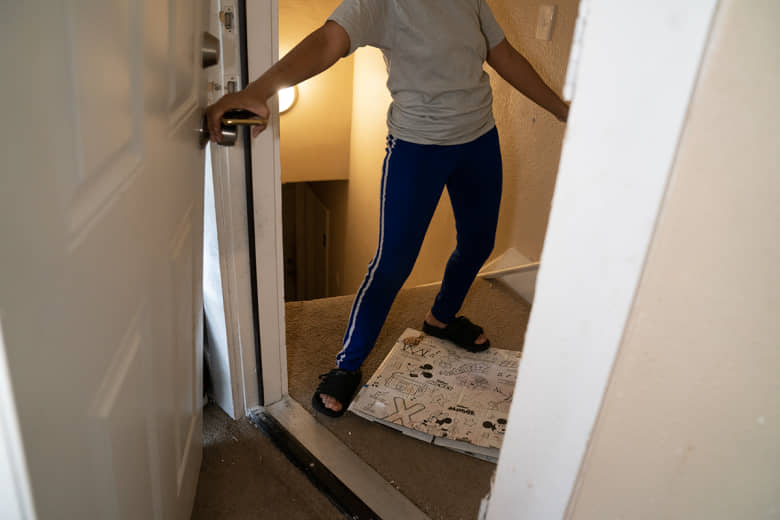As a tenant, you have certain rights that your landlord must respect. One of these rights is the right to live in a safe and habitable environment. But what happens when your landlord fails to uphold their responsibilities and causes you emotional distress? Can you sue them for it? The short answer is yes - but with conditions.
In this blog post, we’ll explore the elements necessary to satisfy an outrageous and intolerable cause of action for emotional distress against a landlord, discuss some FAQs about suing for emotional distress, and provide tips on how to protect yourself as a tenant or landlord from such lawsuits. So buckle up! It’s time to dive into the world of tenant-landlord civil lawsuits.
Can Tenants Sue Landlords for Emotional Distress?
Yes, tenants can sue landlords for emotional distress. Emotional distress refers to the negative psychological impact or trauma that a person may experience due to someone else's actions. In the case of tenant-landlord relationships, if a landlord engages in wrongful conduct that results in severe emotional distress for their tenant, they could be held liable.
However, it's important to note that not all states recognize emotional distress as an independent cause of action. Some states require plaintiffs to prove some physical manifestation of their emotional injuries such as insomnia or loss of appetite before awarding damages.
Additionally, even if your state recognizes claims for intentional infliction of emotional distress against landlords, you will still need to show that your landlord engaged in outrageous and intolerable behavior towards you. This means proving that their actions were extreme and beyond what any reasonable person would find acceptable.
While tenants do have legal recourse against landlords who cause them severe emotional harm through their conduct; it is essential first to understand the requirements necessary before filing a lawsuit.
Essential Components for Establishing an Outrageous and Intolerable Cause of Action
In order for a tenant to sue their landlord for emotional distress, they must prove that the landlord's actions were outrageous and intolerable. But what exactly does this mean?
Firstly, the conduct of the landlord must go beyond ordinary negligence or breach of contract. It must be extreme and egregious behavior that causes severe emotional harm to the tenant.
Secondly, the tenant must show that they suffered actual damages as a result of the landlord's conduct. This can include things such as medical bills, lost wages due to missed work, or therapy expenses.
Thirdly, it is important to note that courts will take into account whether the landlord acted with intent or recklessness in causing emotional distress to their tenant. If it can be proven that the landlord intentionally inflicted emotional harm on their tenant, this may strengthen their case.
It is worth noting that each state has its own laws regarding what constitutes outrageous and intolerable conduct in these types of cases. It is important for tenants considering legal action against their landlords to consult with an experienced attorney who specializes in these matters before proceeding with any legal action.
Tenant-Landlord Civil Lawsuits in General
When it comes to tenant-landlord civil lawsuits, emotions can run high. Whether you're a landlord facing accusations of neglect or a tenant struggling with unsafe living conditions, the legal process can be overwhelming and stressful.
In general, tenant-landlord civil lawsuits fall under the umbrella of tort law, which deals with injuries or harms caused by one party to another. Depending on the specific circumstances of your case, you may have grounds for a variety of claims related to emotional distress.
Common examples include claims for breach of contract (if your landlord violated terms outlined in your lease agreement), negligence (if they failed to maintain safe living conditions), or intentional infliction of emotional distress (if their actions were particularly egregious).
However, it's important to note that filing a lawsuit is not always the most effective way to resolve disputes between tenants and landlords. In many cases, mediation or negotiation may be more appropriate – especially if both parties are willing to work towards a mutually beneficial solution.
Ultimately, whether you decide to pursue legal action will depend on the specifics of your situation – as well as your own personal goals and priorities.
How Landlords Can Avoid Lawsuit
To avoid potential civil lawsuits, landlords must comply with state eviction procedures and avoid wrongful actions such as violating state laws on quiet enjoyment, renting uninhabitable residences, and failing to maintain safe and habitable properties.
If faced with legal action, landlords can use common defenses such as the statute of limitations, lack of evidence, or no defense duty for false allegations. The burden of proof lies on the tenant, and landlords have the right to defend themselves.
Landlords can protect themselves by following lease agreements, legislation, and procedures and carrying a standard landlord insurance policy for property damage and liability coverage. Though tenants may sue for emotional distress, such cases are often unsuccessful, and judges may throw them out without review..
FAQs about how much can i sue my landlord for emotional distress
If you're considering suing your landlord for emotional distress, you may have some questions about the process. Here are some frequently asked questions to help guide you:
1. What constitutes emotional distress in a tenant-landlord relationship?
In case of wrongful eviction and egregious behavior by the landlord during the eviction process, you might be eligible for compensation for emotional distress. However, the tenant must also prove that their distress was severe and directly resulted from the actions of the landlord.
2. How much can I sue my landlord for emotional distress?
The amount of compensation that can be awarded for emotional distress in a legal case varies depending on a variety of factors, including the severity of the harm suffered and the laws in your specific state. In different states, the potential payout for emotional distress can range from $30,000 to $300,000. For example, in California, the maximum amount is up to $250,000, while in Florida, it ranges between $30,000 to $120,000. Similarly, in Georgia, the highest amount one can be awarded is up to $300,000.
3. Can I sue my landlord if they didn't intentionally cause me emotional distress?
Yes, landlords can still be held liable even if they did not intend to cause harm. Negligence or recklessness on their part may still result in legal consequences.
4. Is it difficult to prove emotional distress in court?
Proving emotional distress can be challenging as there is typically no physical harm involved, but it can be easier if there are visible physical symptoms or manifestations of the distress.
5. Should I hire an attorney for my case?
It's highly recommended that you seek legal representation when pursuing a lawsuit against your landlord for emotional distress. An experienced attorney will understand the nuances of these types of cases and help ensure that your rights are protected throughout the process.
Remember that every case is unique and requires individualized attention from an experienced attorney who specializes in this area of law. It's important to consult with qualified legal counsel before proceeding with any legal action against your landlord over issues related to unsafe living conditions or other matters involving tenant-landlord disputes regarding negligence or breaches of contract
Conclusion
It is possible for tenants to sue their landlords for emotional distress if they have suffered severe and egregious conduct. However, such cases are not easy to win as the burden of proof lies with the tenant to demonstrate that their landlord's actions were outrageous and intolerable. It is always advisable to seek legal advice before pursuing a lawsuit against your landlord.
Moreover, landlords can protect themselves from lawsuits by avoiding wrongful actions such as discrimination or retaliation against tenants who complain about unsafe living conditions. In addition, keeping detailed records of all communications and maintaining safe living conditions can also help prevent potential lawsuits.
Both landlords and tenants should strive towards maintaining good relationships based on mutual respect and understanding. Landlords must prioritize the safety and well-being of their tenants while tenants must follow lease agreements and maintain a respectful attitude towards their landlords. By doing so, both parties can avoid disputes that may lead to costly legal battles in court.





